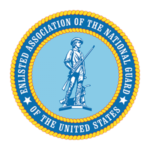In today’s workforce culture, certifications can prove to be just as impactful, and often more desirable, than a degree. Employers have always sought specific qualifications in their workforce and certificates have been increasingly part of what gives a candidate an edge on the competition. The complexity of translating military experience onto a civilian resume, a certification is a definitive advantage in the job market.
Military leadership today cultivates a smarter, more educated force. This was the premise behind the Army Credential Assistance (ARMY CA) program established in 2019. The Army realized then that education was not just about college and more needed to be one to help set up our combat arms MOS soldiers for transition.
While corporate America has clearly navigated the importance and distinction between a college degree and a professional certification, the Army looks to be taking a step in the opposite direction.
Over the last few years, CA has served as a hallmark of innovation for secondary education considering societies shift to a skills-based workforce. At a time where Army Recruiting has been very publicly suffering, reducing and restricting the ability for military members to get credentialing could be the wrong decision for the education of the military members; yet funding concerns have led leadership to reduce the Army CA Benefit starting in 2025.
The proposed changes will lower the Army CA benefit from $4,000 per year with no career cap, to only $1,000 per year and a $4k career cap. Additionally, soldiers will only be allowed to use Army CA if the certification is in align with their MOS. If you are in the communications field and need to get a certification on a new technology, this benefit would only cover $1,000 of the cost AND would only be approved because it supports your military career; however, a Combat Arms Soldier would not qualify for the same certification, regardless of what his plans are after the uniform comes off. This plan would leave some valuable certifications, like a PMP Certification, without any CA to offset the cost.
The impact of this change becomes even more magnified for the National Guard, who have civilian jobs where the education benefit of a certification is immediately impactful. It can give Guard Soldiers an extra marketable skill in the workforce now, not just after they get out of the Guard. Congress is already aware of the disparities in benefits that the National Guard has when it comes to educational benefits, that is why efforts like the GI Bill Parity Act exist. If this policy change goes into effect, it is yet another disparity that Guard members will be left to overcome.
Overall, this move also runs counter to the updated 2023 Army University strategy that calls for a Culture of Continuous Learning and Self-development that:
Soldiers must develop a commitment to guided and personal self-development, which are critical aspects of the self-development training domain. Army University promotes these aspects of self-development through the Army credentialing and continuing education system. Guided development includes the opportunity to pursue MOS-related credentials that prepare Soldiers for changing technical, functional, and leadership responsibilities. Personal development includes educational opportunities that are self-initiated, such as pursuing college education, advanced degrees, or self-initiated credentialing opportunities through the voluntary education programs.
With current costs and the diversity of credentialling options, this change could result in CA becoming obsolete and push the Army behind all other branches (even the Navy and the USMC which have the most limiting resources) in terms of DoD COOL benefits. To maintain the most lethal and strategic military in the world, we encourage education and training, both in and out of uniform. Part of the reason we have the most professional force in the world is that we continually challenge service members academically. We even reward higher education with promotion points, opportunities, and leadership roles. This change just doesn’t make sense for the welfare of the National Guard.



